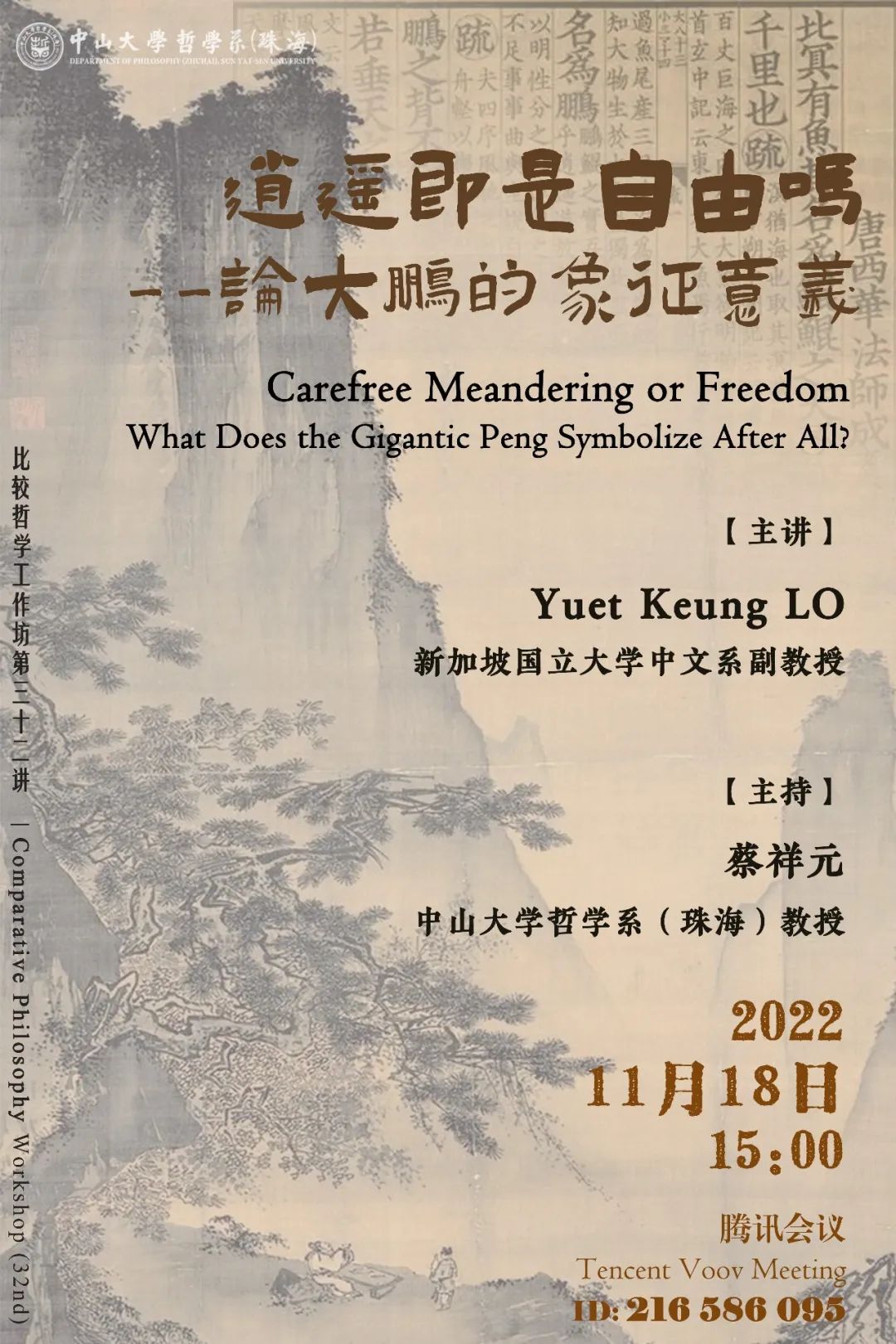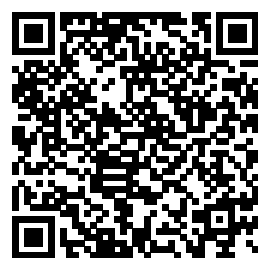比较哲学工作坊第三十二讲:逍遥即是自由吗?——论大鹏的象征意义
比较哲学工作坊第三十二讲:逍遥即是自由吗?——论大鹏的象征意义
Comparative Philosophy Workshop (32nd)
比较哲学工作坊第三十二讲

Organizer:
Department of Philosophy (Zhuhai), Sun Yat-sen University
Topic:
Carefree Meandering or Freedom—What Does the Gigantic Peng Symbolize After All?
Speaker:
Yuet Keung LO, Associate Professor of Department of Chinese Studies, National University of Singapore
Moderator:
CAI Xiangyuan, Professor, Department of Philosophy (Zhuhai), Sun Yat-sen University
Time:
November 18th. 2022 15:00
VooV ID:
216-586-095
ABSTRACT:
In modern scholarship, there is a peculiar focus on the idea of freedom in the studies on the Daoist classic Zhuangzi and the overwhelming number of works on this issue can easily constitute a discourse on freedom. Strangely enough, in spite of the pivotal importance accorded to freedom, its exact referent is hardly ever delineated, though freedom is consistently presumed to be identical in meaning with the term xiaoyao (“carefree”) in the Zhuangzi. As the concept of xiaoyao itself is not critically analyzed in its own right, a vague notion of “spiritual freedom” is imagined which is typically associated with a return to Nature (ziran) or the Dao. Yet, the meanings of Nature and the Dao—two dense concepts of fundamental importance in the Zhuangzi—are not unpacked either. In effect, readers are often left with a game of wordplay in the freedom discourse. On the other hand, it is an academic consensus that the gigantic Peng bird symbolizes spiritual freedom in the opening episode of the first chapter of the Zhuangzi. As such, the legendary creature may offer a convenient clue to unpack some of the conceptual baggage in the freedom discourse. This talk clarifies how “freedom” could be a useful concept in understanding xiaoyao and argues that the carefree meandering of the Peng, while a spiritual achievement, is firmly grounded on the peripatetic practices of the Daoist who gracefully and effortlessly negotiates the uncertainties inherent in his life-journey. It is not so much the spiritual achievement as the praxis that facilitates it that concerns xiaoyao in the Zhuangzi.
1
主办:
● 中山大学哲学系(珠海)
2
主题:
● 逍遥即是自由吗?
3
主讲:
● Yuet Keung LO (劳悦强)
新加坡国立大学中文系副教授
4
主持:
● 蔡祥元 中山大学哲学系(珠海)教授
5
时间:
● 2022年11月18日15:00
6
地点:
● 腾讯会议 216-586-095
摘要:
现代学者研究庄子哲学,似乎不约而同都会使用“自由”这一概念,数量之多足以构成一种关于庄子哲学的“自由论说”。
来源|哲珠新媒体
文稿 | 贾永泽
编辑|谢璐蔓
初审|黄丹萍
审核|卢 毅
审核发布|屈琼斐


